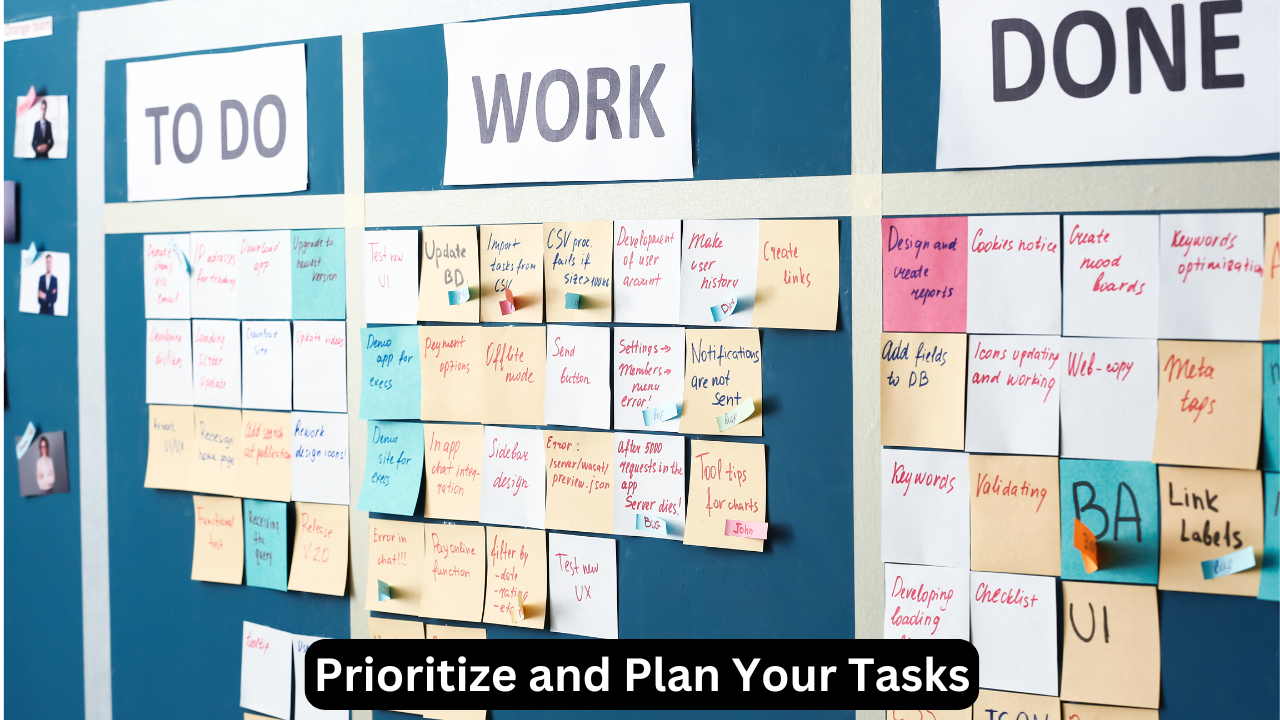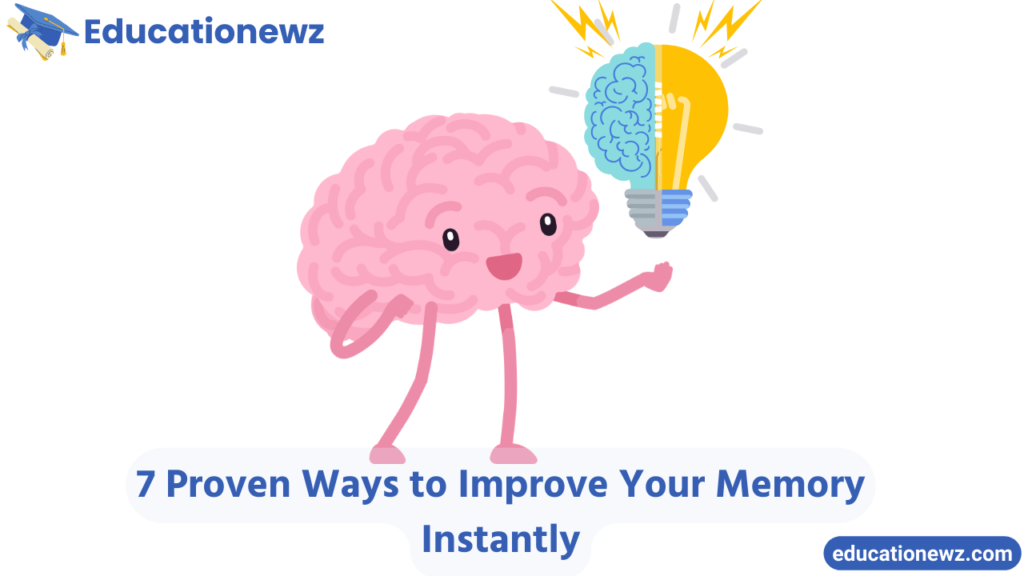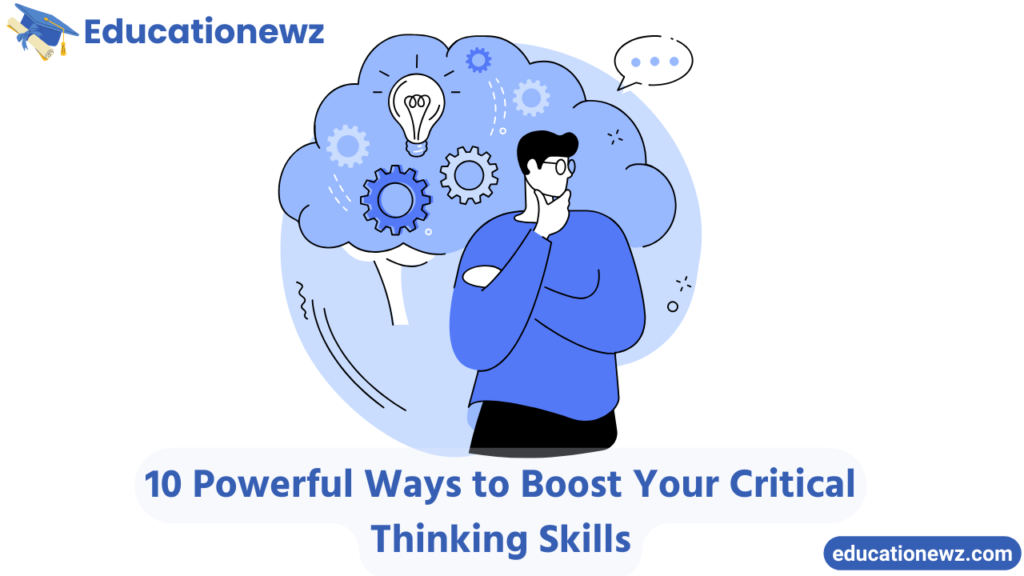To Study with intense Focus, prioritize one task at a time, eliminate distractions, and maintain a consistent, restful routine for lasting concentration and productivity.
In today’s world, distractions are everywhere. From social media notifications to the constant pressure of multiple tasks, it’s difficult to maintain concentration for long periods of time. However, to achieve success in any field, particularly academics, study with intense focus is a necessity. In this article, we will explore ten essential tips that can help you boost your concentration and efficiency, enabling you to perform at your best while studying.
Achieving a high level of focus requires intentional planning and a systematic approach. It’s not about forcing yourself to study for hours on end, but about using strategies that will keep you fully engaged during your study sessions. By incorporating these tips, you can overcome distractions, improve your productivity, and significantly enhance your academic performance.
Why Do Students Struggle to Focus While Studying?
Maintaining deep focus during study sessions can be challenging, and many students find themselves easily distracted. Understanding why this happens is the first step to overcoming it. Here are some common reasons students struggle to stay focused:
- Distractions Everywhere
From smartphones to social media, distractions are constant. Each notification pulls your attention away, making it difficult to stay focused on the material at hand. - Overwhelm from Too Much Material
Facing a mountain of content can feel daunting. When there’s too much to study, students can become paralyzed and unable to focus on one thing at a time, leading to procrastination and scattered attention. - Lack of Clear Goals
Without specific, achievable goals, it’s easy to drift aimlessly through study sessions. Having clear targets helps to maintain focus and gives purpose to your study time. - Mental Fatigue
Being tired, either mentally or physically, can seriously impact your concentration. Without adequate sleep or breaks, your brain becomes foggy, making it harder to retain information and stay engaged. - Perfectionism
Trying to perfect every detail can cause you to overthink and waste time. Students who are too focused on minor details may struggle to move forward with their studies, getting stuck in a cycle of over-analysis. - Lack of Interest or Motivation
If the subject matter doesn’t spark your interest, staying focused becomes even harder. A lack of motivation makes it difficult to engage with the material, especially if you don’t see the relevance to your goals.
Identifying these challenges and actively addressing them can help you build stronger focus, making studying more productive and less stressful.
Tips to Study with Intense Focus
1. Prioritize and Plan Your Tasks the Night Before

To study with intense focus, it’s crucial to plan ahead. The key to a successful study session starts the night before. Set aside time each evening to outline your tasks for the following day. Ask yourself, “What is the most important task I need to complete tomorrow?” By identifying your priority, you can direct your energy to the most pressing issue and avoid the feeling of being overwhelmed.
Planning your study day not only helps you stay focused but also gives you a clear direction. You won’t waste precious time figuring out what to do next, which increases your overall productivity. To ensure you stay on track, write out your tasks and assign specific times for each one. This will help you stick to your schedule, enabling you to study more effectively.
Tip: Use a physical planner or a digital tool like Google Calendar or Trello to organize your tasks.
2. Break Down Larger Tasks into Smaller, Manageable Chunks
One of the reasons we struggle to study with intense focus is because the task at hand feels too overwhelming. Breaking down large assignments into smaller, more manageable tasks can reduce stress and help you stay on track. When you focus on one small task at a time, it becomes easier to maintain concentration without feeling distracted by the magnitude of the work.
Start by dividing your study materials into smaller sections. For example, if you’re preparing for a big exam, break your study schedule into chunks such as reviewing one chapter each day or completing a set number of practice questions per session. As you finish each chunk, you’ll experience a sense of accomplishment, which can motivate you to keep going.
3. Establish a Productive Study Environment
Your study environment plays a significant role in helping you study with intense focus. A cluttered or noisy environment can easily distract you and hinder your concentration. On the other hand, a clean and organized study space can help promote focus and clarity.
Choose a quiet space, free from distractions, where you can comfortably sit for long periods. Ensure that your workspace is well-lit, and keep only the materials you need for your study session nearby. If you prefer listening to music while you study, choose instrumental or classical music, as it tends to be less distracting.
Tip: Consider using apps like Focus@Will or Brain.fm for background music that can enhance your focus.
4. Use the Pomodoro Technique to Boost Productivity
The Pomodoro Technique is a simple and effective method for increasing focus and productivity. This technique involves working for a set period of time, usually 25 minutes, followed by a short break of 5 minutes. After four “Pomodoro sessions,” take a longer break of 15-30 minutes.
The Pomodoro Technique works by breaking study time into manageable intervals, helping you stay focused with intense focus without feeling mentally exhausted. During the 25-minute study sessions, give your full attention to the task at hand, and when the timer goes off, take a short break to recharge. The structure of this technique helps you stay consistent while reducing mental fatigue.
5. Minimize Distractions by Turning Off Notifications

In today’s world, the constant pinging of notifications can easily disrupt your focus. To study with intense focus, it’s essential to remove all distractions. One of the simplest ways to do this is by turning off your phone notifications. Whether it’s social media, text messages, or emails, these interruptions can quickly pull your attention away from your work.
Use apps like Focus Mode or Do Not Disturb on your phone and computer to block notifications during study sessions. By eliminating distractions, you’ll be able to dive deeper into your work and sustain your focus for longer periods of time.
Tip: Consider using website blockers like Freedom or Cold Turkey to block distracting websites.
6. Stay Physically Active to Improve Mental Focus
Physical exercise has a direct impact on your ability to study with intense focus. Regular physical activity helps improve blood flow to the brain, which can enhance concentration, memory, and overall cognitive function. By taking breaks to move around, you can boost your energy levels and maintain focus during study sessions.
Incorporate light physical activity into your study routine. Whether it’s stretching, walking around the block, or doing some quick exercises, taking a break to move your body can refresh your mind and keep you on track.
7. Maintain a Healthy Diet and Sleep Schedule
Your brain needs fuel to function properly. If you’re not eating nutritious meals or getting enough sleep, your ability to study with intense focus will be compromised. Ensure that your diet is rich in nutrients that support brain health, such as omega-3 fatty acids, antioxidants, and protein.
In addition to a balanced diet, getting adequate sleep is crucial for cognitive function. Aim for at least 7-8 hours of sleep each night to ensure that your brain is well-rested and ready to absorb new information. Lack of sleep leads to decreased concentration, impaired memory, and poor decision-making.
8. Use Active Learning Techniques
Passive studying, such as simply reading or highlighting, is not the most effective way to study with intense focus. Active learning techniques, such as summarizing what you’ve learned, teaching the material to someone else, or practicing with mock tests, engage your brain in a more productive way.
Active learning requires you to interact with the material, which leads to better retention and understanding. Try to apply what you’re studying in real-world situations or relate it to something you already know. The more actively engaged you are with the material, the more focused you’ll be.
9. Track Your Progress and Celebrate Achievements
Tracking your progress can help you stay motivated and study with intense focus. When you see the results of your hard work, it can fuel your determination to keep going. Break down your goals into smaller milestones, and celebrate each achievement along the way.
For example, if you’ve completed a chapter or finished a practice exam, reward yourself with a small treat or a short break. This positive reinforcement creates a cycle of motivation, allowing you to focus more effectively on your studies.
10. Practice Mindfulness and Stress Management

Stress is a major barrier to focus. If you feel anxious or overwhelmed, it becomes difficult to concentrate on your studies. Practicing mindfulness techniques, such as deep breathing, meditation, or yoga, can help you calm your mind and maintain intense focus.
Mindfulness helps you stay present in the moment, allowing you to concentrate fully on the task at hand. By managing stress effectively, you can avoid mental burnout and maintain high levels of focus throughout your study sessions.
Benefits of Effective Study Habits
| Habit | Benefit |
|---|---|
| Prioritize Tasks | Helps reduce overwhelm and ensures focus. |
| Active Learning Techniques | Boosts retention and comprehension. |
| Physical Activity | Enhances brain function and focus. |
| Healthy Diet & Sleep | Improves cognitive function and energy. |
| Mindfulness Practices | Reduces stress and increases focus. |
FAQs
Q1: How can I study for long hours without losing focus?
A1: To study for long hours without losing focus, try using the Pomodoro Technique, eliminate distractions, take regular breaks, and maintain a balanced diet and sleep schedule.
Q2: How do I deal with distractions during study sessions?
A2: To manage distractions, turn off phone notifications, use website blockers, and create a quiet, clutter-free study space.
Q3: What are some effective study techniques for better focus?
A3: Active learning techniques, such as summarizing, teaching, and using mock tests, can help you stay engaged and improve focus.
Q4: Can physical activity improve my focus while studying?
A4: Yes, physical exercise enhances blood flow to the brain, improving cognitive function and focus. Regular physical activity can help you stay alert during study sessions.
Q5: How much sleep do I need to study effectively?
A5: Aim for 7-8 hours of sleep each night to improve memory, concentration, and overall brain function.
Conclusion
To study with intense focus, it’s essential to implement strategies that help minimize distractions, enhance your mental and physical well-being, and create a productive environment. By prioritizing your tasks, establishing routines, and using active learning techniques, you can sharpen your focus and improve your study habits. Remember, consistency is key—practice these habits regularly to experience long-term benefits and academic success. Please follow our blog Educationewz.



